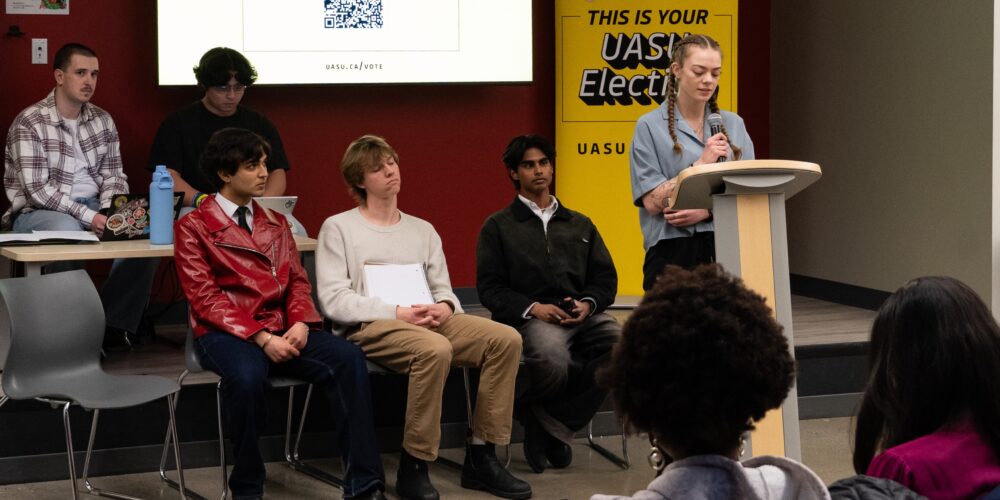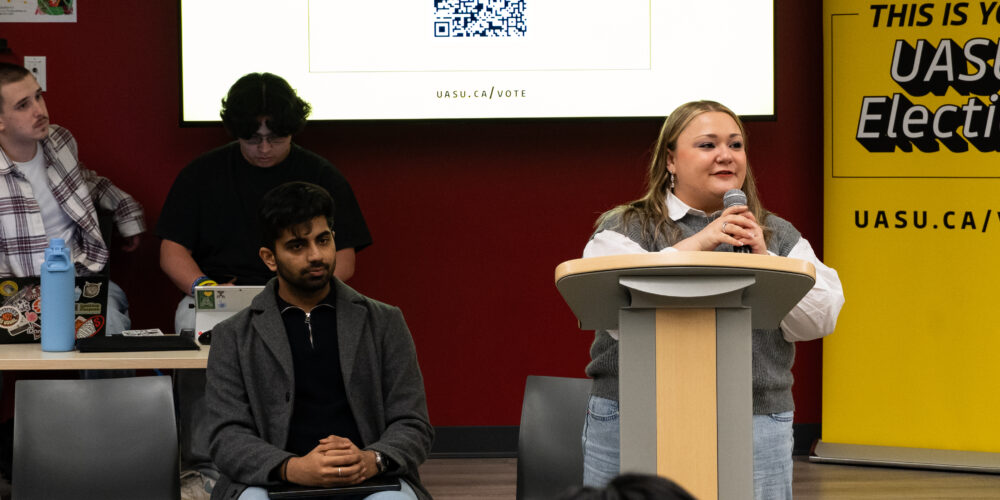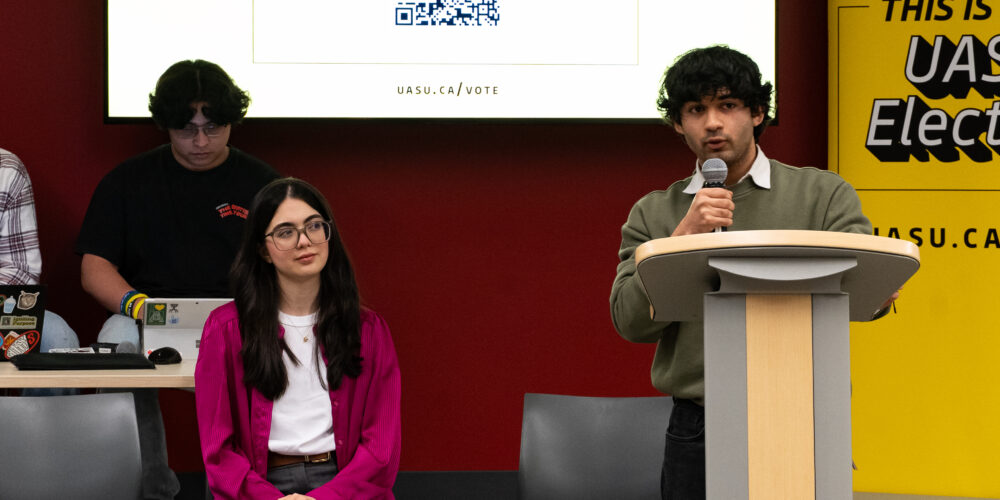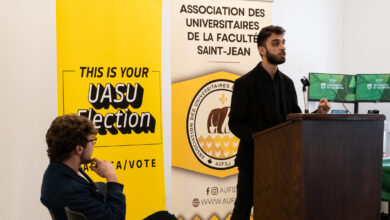Student participation in politics can make a big impact
Young voters have the power to shape their future, but only if they show up.
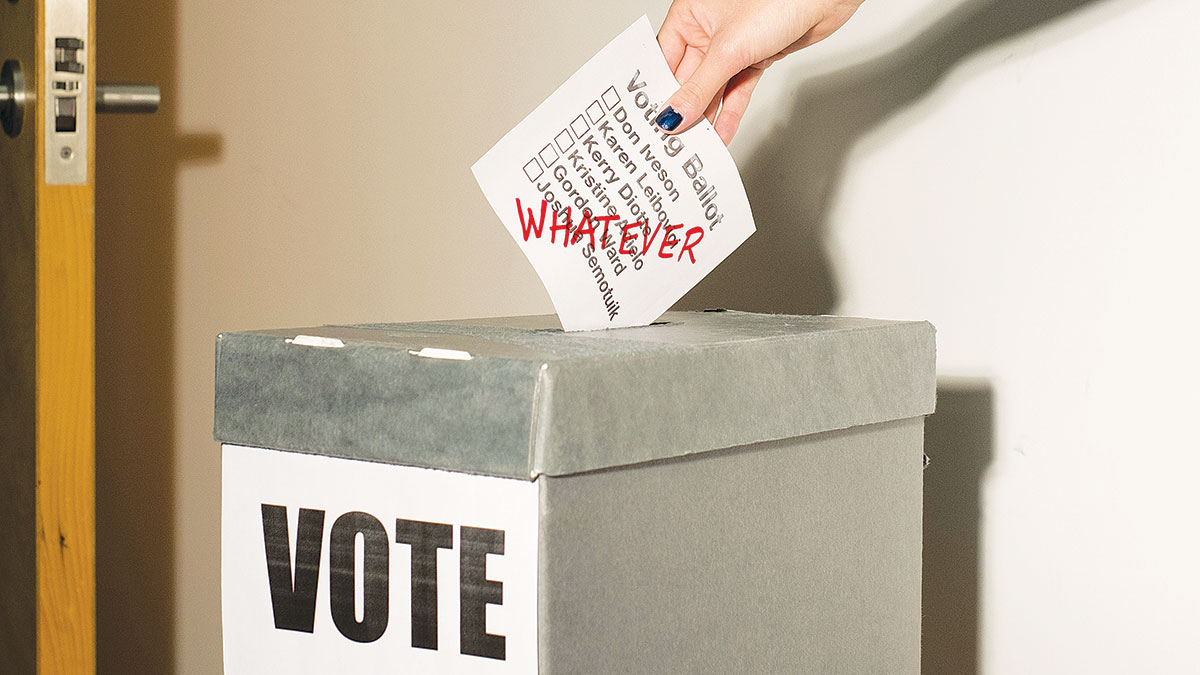 Ab Sch
Ab SchIf free pizza can get students to a club meeting, maybe we should start handing out pepperoni slices at polling stations.
2025 is shaping up to be a crucial year for politics in Canada, especially for students. There is both a federal election and a municipal election in Edmonton on the horizon. This is an opportunity for young voters to make a real impact. Yet historically, voter turnout amongst young people, particularly students, remains far lower than older generations. The result? Politicians make decisions without hearing the voices of those who will be most affected in the years to come.
People often describe students as politically aware but disengaged, frustrated with systems they feel are unresponsive to their needs. This frustration is understandable. Housing prices, cost-of-living increases, mounting student debt, and concerns about employment dominate our day-to-day lives, but solutions can feel far out of reach. In a time when political promises often fail to translate into action, many students are skeptical that their votes will bring about change. But opting out of elections only solidifies this cycle. Silence allows governments to continue prioritizing the issues that mobilize older, more active voters.
Take Edmonton’s municipal elections, for example. Local governments have more influence than most people realize. City council determines policies that shape housing affordability, transit services, and infrastructure — all critical issues for students. Voter turnout in municipal elections often hovers at dismal levels, with young people typically underrepresented in the results. When students don’t show up at the ballot box, candidates have little incentive to address their concerns.
The federal election will be just as significant. National policies on education funding, climate action, health care, and the job market all have far-reaching effects for students. The federal government’s decisions directly impact issues like tuition affordability and financial aid. These decisions will happen with or without students’ input. When politicians look at the voting blocs that show up consistently, students’ absence sends a clear message: their votes are not guaranteed, so why pay them any mind?
The question then becomes, how do we turn political awareness into action? Civic engagement on campus is a powerful place to start. Student associations, clubs, and grassroots initiatives can play an enormous role in mobilizing their peers. Hosting debates, running voter registration drives, and organizing discussions about candidates and platforms can break down the barriers to participation. Many students feel overwhelmed by the political process or uncertain about where to start. Creating accessible ways to engage — such as voter education campaigns tailored to campus life — can help bridge that gap.
The rise of social media as a political tool also gives students a chance to connect with politics in ways previous generations couldn’t. Platforms like Instagram, TikTok, and X have made political information more accessible, though it’s not always accurate. While students need to be critical of the information they consume, these spaces provide opportunities to amplify voices, share issues that matter, and encourage friends to vote.
This year is a chance for students to make their voices heard. Instead of disengaging, now is the time to demand policies that reflect student priorities. By turning up to vote — whether in the municipal election that directly affects day-to-day life in Edmonton, or in the federal election that will shape Canada’s future — students have the power to shape the outcomes. Voting is not just a civic duty. It’s a way to claim a seat at the table. For students in 2025, the choice is clear — show up, or let someone else decide your future for you.

